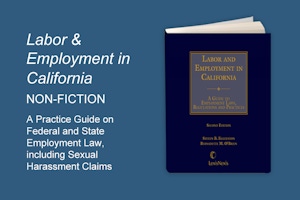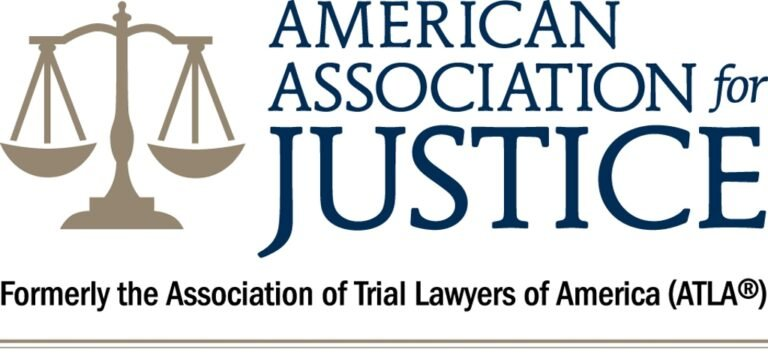Legal Career and Professorships of Steve Eggleston
Law School
Law School: Lincoln Law School of Sacramento Distinctions: Valedictorian, Lincoln Law School of Sacramento (1982)Professorships:
- Lincoln Law School of Sacramento: Professor, Remedies (1985-89)
- Awards: Law Professor of the Year (1989)
- Adjunct Professor, IADT, Sanford Brown College, The Art Institute – Understanding the Music Business; American History & Politics; Classic Ethics; Communication Law & Ethics; Intellectual Property; Portfolio (2014-15)
Published Legal Decisions:
- Watkins v. Watkins: The 1st Palimony Jury Verdict ever affirmed on appeal
- Stitt v. Williams: The largest Rule 11 Sanctions award ever imposed
- Foremost vs. Wilks: No Cumis Counsel for Punitive Damages Claims
- Hillenbrand v. INA-Aetna: Multi-million dollar award affirmed on Eggleston trial testimony
- Ash v. Dean Witter Reynolds: Investor’s 10(b) Fraud Claim not time-barred
Law Review:
- Editor, Voir Dire (1981-82)
- Editor, Voir Dire (1980-81)
- Associate Editor, Voir Dire (1979-80)
Lecturer/Panelist
- Judge David O’Brien, Employment Law Lecture Series (1986-90)
- Indie Entertainment Summit (2012-present)
Distinguished Trial & Appellate Attorney
- 1982-1989: Wohl, Cinnamon & Hagedorn (Associate/youngest Junior Partner in firm history)
- 1989-1993 Wohl & Eggleston (Partner)
- 1993-1997 Eggleston & O’Brien (Partner)
- 1997-2003 Lopez, Hodes, Milman, Restaino & Skikos
Specialties:
- Employment
- Music & Entertainment
- Insurance Bad Faith
- Complex Business Litigation
- Civil Litigation & Class Actions
Notable Verdicts:
- $3.4 million, Phillips vs. Family Fitness
- $2.8 million, Moss v. Pan Canadian Oil
- $800,000, Mehl v. Dr. John Smith
Sample Jury Verdicts, Mediations & Settlements:
- Phillips v. Family Fitness Centers: $3.4 million jury verdict was one the largest jury verdicts in a business case in Sacramento County history at the time.
- Peterson Mineral Pool v. Pan Canadian Oil Company: $3 million settlement based on wrongful drainage.
- Mehl Medical Malpractice: $800,000 jury verdict based on medical negligence related to cheek implants.
- O’Brien v. Sutter Health: Multi-million dollar resolution in business interference case mediated by retired Justice George E. Paras.
- Ariello v. Foundation Health: $500,000 Arbitration Award in Disability Discrimination case (failure to provide reasonable accommodation to woman suffering from endometriosis).
- Aratow v. Sony: Multi-million dollar settlement over motion picture and television rights to Sheena, Queen of the Jungle.
- Wilton Residents v. Foster Farms: Multi-million Settlement in turkey farm nuisance case.
- Futurest Waterbeds vs. Oates Development: Multi-million Settlement in Business Interference case.
- Mass Tort Litigation, including Breast Implant, Fen-phen, Tobacco: Participated in pre-trial work before settlements in the hundreds of millions of dollars.
- Baraducci v. General Electric: substantial confidential settlement after 9-1 jury verdict in age discrimination case tried in San Francisco federal district court.
- Brent v. Home Depot: substantial confidential settlement after trial started in Oakland state court in disability discrimination lawsuit.
Labor & Employment in California – A Practice Guide on Federal and State Employment Law, including Sexual Harassment Claims
 A renowned expert in U.S. & California employment and labor law, Steve Eggleston’s non-fiction book, “Labor & Employment in California,” was one of the first comprehensive books on federal and California state employment law. Published originally by Butterworth, it has been updated and published annually by global publisher Lexis Nexis ever since. This highly popular legal practice book summarizes all primary issues of federal and California labor and employment law.
Here is the backstory of how the book came about:
Turn back the pages to the late 1980s. My legal career is on fire and I’m quickly becoming a force to be reckoned with at the trial bar. Noted trial attorney Al Wohl and I had broken off from Wohl, Cinnamon & Hagedorn to form our own law practice, Wohl & Eggleston. My wife, Bernadette M. O’Brien, was an associate attorney with us and her father, the inimitable David O’Brien, was a retired UI and Worker’s Comp Appeals Judge who spent his time writing books and lecturing throughout the state.
Butterfield Publishing approached the Judge to write a comprehensive practice book on California labor and employment law, at both the federal and state level. The Judge declined the offer, saying he was too busy, but suggested, “my son-in-law and my daughter, who both graduated first in their class in law school. Steve is making his name as a trial lawyer in business and employment law, and my daughter has been working in my office since she could crawl. Why don’t you ask them to write the book?”
Nine months later in 1991 we published Labor and Employment in California: A Comprehensive Practice Book on Federal and State Employment Law under the Butterworth banner. The book hit the shelves and sold well, Butterworth was bought by Lexis Nexus, and ever year thereafter the book was updated by the biggest legal publisher in the world backing us. Following the release of the book, I remember doing a ton of seminars with Judge O’Brien, who would swear up and down to seeing Leprechauns as a child. It was a hoot but there’s one thing I’ll never forget.
Years after his daughter and I divorced – she was seeing another attorney behind my back, a lawyer I didn’t like by the name of Zack Smith – the Judge stopped me in the lobby in my San Francisco office. We had hired him as an expert in a case against Home Depot for disability discrimination. As the Judge and I waited for the elevator to arrive, he turned to me and said to my utter surprise and consolation: “Steve, you always were my favorite son-in-law.” I smiled and replied, “thanks, David, that means a lot coming from a guy with five daughters.”
A renowned expert in U.S. & California employment and labor law, Steve Eggleston’s non-fiction book, “Labor & Employment in California,” was one of the first comprehensive books on federal and California state employment law. Published originally by Butterworth, it has been updated and published annually by global publisher Lexis Nexis ever since. This highly popular legal practice book summarizes all primary issues of federal and California labor and employment law.
Here is the backstory of how the book came about:
Turn back the pages to the late 1980s. My legal career is on fire and I’m quickly becoming a force to be reckoned with at the trial bar. Noted trial attorney Al Wohl and I had broken off from Wohl, Cinnamon & Hagedorn to form our own law practice, Wohl & Eggleston. My wife, Bernadette M. O’Brien, was an associate attorney with us and her father, the inimitable David O’Brien, was a retired UI and Worker’s Comp Appeals Judge who spent his time writing books and lecturing throughout the state.
Butterfield Publishing approached the Judge to write a comprehensive practice book on California labor and employment law, at both the federal and state level. The Judge declined the offer, saying he was too busy, but suggested, “my son-in-law and my daughter, who both graduated first in their class in law school. Steve is making his name as a trial lawyer in business and employment law, and my daughter has been working in my office since she could crawl. Why don’t you ask them to write the book?”
Nine months later in 1991 we published Labor and Employment in California: A Comprehensive Practice Book on Federal and State Employment Law under the Butterworth banner. The book hit the shelves and sold well, Butterworth was bought by Lexis Nexus, and ever year thereafter the book was updated by the biggest legal publisher in the world backing us. Following the release of the book, I remember doing a ton of seminars with Judge O’Brien, who would swear up and down to seeing Leprechauns as a child. It was a hoot but there’s one thing I’ll never forget.
Years after his daughter and I divorced – she was seeing another attorney behind my back, a lawyer I didn’t like by the name of Zack Smith – the Judge stopped me in the lobby in my San Francisco office. We had hired him as an expert in a case against Home Depot for disability discrimination. As the Judge and I waited for the elevator to arrive, he turned to me and said to my utter surprise and consolation: “Steve, you always were my favorite son-in-law.” I smiled and replied, “thanks, David, that means a lot coming from a guy with five daughters.”
Coauthor of the Proposed New 28th Amendment to the U.S. Constitution
In 1787 things were in a shambles in America. The Confederacy of 13 states were working at odds and to fix things, held a convention whose sole purpose was to amend the Articles of Confederation which loosely bound them. Instead, the purpose was tossed aside and a whole new Constitution written and passed – a document designed “to form a more perfect union.” Few people realise how close we were to having no Constitution at all. Grateful to have a new Constitution, those who also wanted a Bill of Rights incorporated into the Constitution, or passed simultaneously therewith, momentarily fell quiet. Better something than nothing was the feeling. But two years later, in 1789, worry of growing nationalism gripped the founders. They feared the new America might grow into another Great Britain or worse, taking away the regional sovereignty of the states and individual liberties. From this fear, the Bill of Rights was borne. These are the first 10 amendments to the Constitution that every schoolboy and schoolgirl once knew by heart. These are the Amendments that safeguard liberty, justice, individual and state’s rights, things like freedom of press and assembly, the right to bear arms and to a jury trial, the prohibition on cruel and unusual punishment, substantive and procedural due process, and liberty. Since those early days, 17 additional amendments have been adopted, making a total of 27. Some of these are more technical, addressing the machinery of democracy and how the parts are to function together, while others address specific rights or prohibitions. The 11th Amendment, for example, prohibits individuals from suing states in federal courts; the 16th Amendment removed constraints on the power of Congress to lay and collect income taxes; the 18th Amendment imposed prohibition, and the 21st Amendment repealed the 18th. America would not continence a nation of teetotallers. So how does this relate to me and the 28th Amendment (Proposed)? The core theme to the book is the corruption of the American food industry by special interests. That corruption is made possible by special interests financing the elections of career politicians. If Big Food and Big Sugar had not employed the most powerful team of highly-financed lobbyists imaginable, many of them former Congressmen, we would not have 150 million pre-diabetic, Diabetic and obese people suffering in America today. So my writing partner, Jon Gordon, said: “enough is enough.” He founded an IRS 502(c)(4) non-profit called Constitutional Change Now (CCN), whose purpose is to hold the first Constitutional Convention since the nation was founded, and at that Convention, pass the 28th Amendment, which he called upon me to co-write. The 28th Amendment imposes term limits on Congress, placing on them a cap of right years, and bars Congressmen from serving as lobbyists for eight years. Read more, including the text of the 28th Amendment, and join the CCN movement at ConstitutionalChangeNow.org. All donations to the cause are greatly appreciated.






Recent Post
Services
Contact
- steve@steveegglestonwrites.com
- USA & CANADA : +001 (254) 717-0683
- Falls Church, Virginia, USA.
- steve@steveegglestonwrites.com
- +44 (0)1749 428 187
- London and Somerset, England.








